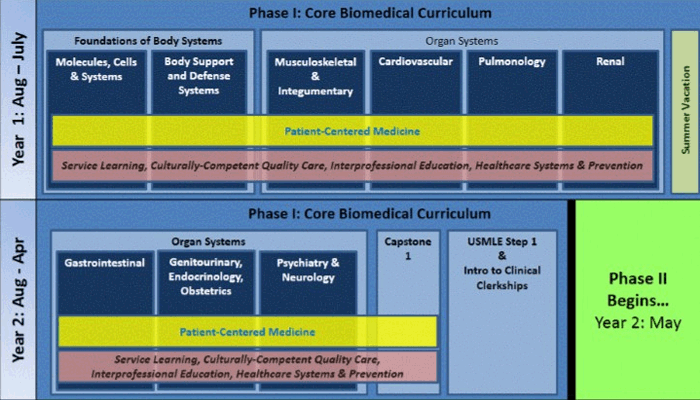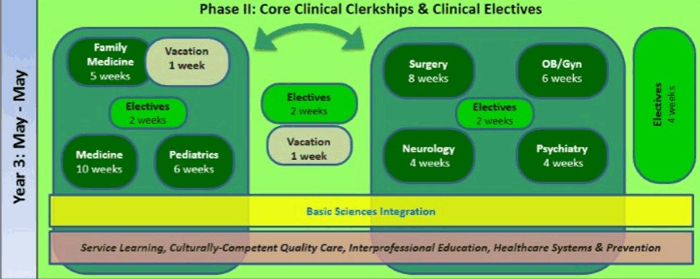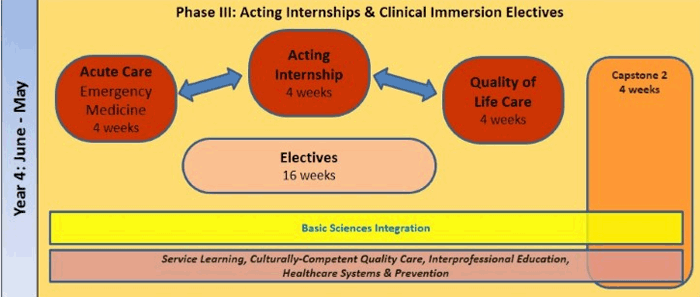Curriculum
The renewal of the New Jersey Medical School curriculum is the product of extensive discussion and faculty/student collaboration involving basic science and clinical departments. The Curriculum Framework Model calls for a curriculum featuring 3 main phases and is based on the following guiding principles and key priorities:
- Service Learning
- Longitudinal clinical experiences
- Basic science integration into clerkship years
- Integrated organ systems-based curriculum with capstones
- Interprofessional educational opportunities
- Active learning
- Milestone assessments and monitoring of curriculum
- Expanded elective opportunities early in curriculum
- Student Wellness
Phase 1
Foundations of Medicine serves as an introduction to foundational scientific principles and the profession of medicine with a focus on the patient as a person. It exposes students to the learning pedagogy and the various themes that will be encountered throughout the four year curriculum.
Core Biomedical Curriculum builds on the foundational principles and provides an in depth study of structure, function and disease in an integrated organ system based approach. These integrated courses will be co-led by basic science and clinical faculty.
Capstone will conclude Phase 1 by “putting it all together”. Clinical case based scenarios will be used to illustrate and apply concepts learned. Skills training (ACLS, BLS, intravenous placement) is also included in the transition to the third year clerkships.

Phase 2
Phase 2 will begin on May 1 of the second academic year with core clerkship experiences. One of the major goals is to provide expanded early elective opportunities. This additional time for electives in Phase 2 is consistent with the primary aim of emphasizing both individualization and standardization in the curriculum. A key element will be flexibility, allowing students to pursue electives and wellness opportunities. Careful attention is paid to mapping clinical experiences, achievement of milestones and greater basic science integration.
There is a commitment to build in the thread of basic foundational science concepts into Phase 2 through structured learning activities within the clerkships, including applications of such concepts as anti-microbial resistance, and clinical pharmacology.

Phase 3
Phase 3 allows for ample elective time and further career exploration and differentiation. There will be required Acting-internships and elective time with an effort to emphasize certain foundational science topics relevant to the emergently and critically ill patient. Elective time will be a major feature of Phase 3 in addition to a capstone course.

Curriculum Overview presented by: Christin Traba, MD, MPH, Interim Associate Dean for Education
